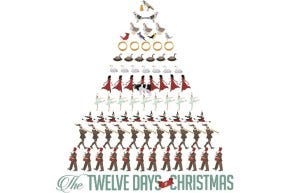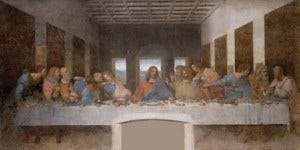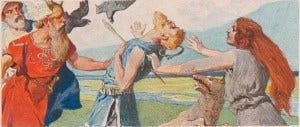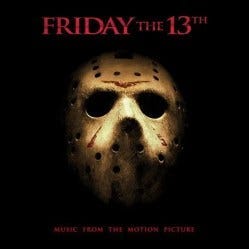If you’re reading this article to learn the history of Friday the 13th, you’re in luck.
Or perhaps bad luck.
No one knows, with any certainty, when it began or why it’s to be feared. However, there are lots of entertaining speculative theories about the topic.
What is the Fear of Friday the 13th?
Paraskevidekatriaphobia — is the name of the superstition. The word is constructed from the Greek words Paraskeví (Παρασκευή), meaning “Friday,” and dekatreís (δεκατρείς), meaning “thirteen.”
Friggatriskaidekaphobia — is the fear of Friday the 13th. The word has both Norse and Greek roots: Frigg or Frigga, the name of the wife of the Norse god Odin. Friday gets its name from Frigg. Triskadeka is “thirteen” in Greek (literally: “three” and “ten”), and phobia means “fear.”
12 is completeness, 13 is useless
Twelve is considered complete in many cultures. Mathematically, it can be divided into halves, thirds, and quarters. You can’t do that neatly with Ten.
Examples:
12 tribes of Israel
12 hours in a day
12 months
12 Zodiac signs
12 gods of Olympus and Norse mythology
Thirteen is a dubious number, and Friday has gotten a bad rap. Add them together, and you get Friday the 13th.
Friday in the Bible
There are several ominous Fridays in the Bible.
The Crucifixion of Jesus took place on Friday, later called Good Friday. Subsequently, Good Friday became a day of penance.
Eve gave Adam an apple to eat on Friday
Cain killed Abel on a Friday
13 in the Bible
The Last Supper featured 13 around the table, including Jesus and the 12 Disciples. Judas Iscariot left the Supper to betray Jesus to the authorities. Subsequently, Judas took his own life.
The Flood of Noah is said to have occurred on Friday, September 13
Friday the 13th in Mythology
The Old Norse story is told about the twelve Nordic gods dining in Valhalla when an uninvited guest, Loki, the god of mischief, joined the group, making it 13. During that dinner, Loki deceived the blind god Höder into shooting Baldar, son of Odin and Frigg, with a mistletoe-tipped arrow, the only thing able to kill Baldar
Friday the 13th in History
An early story suggested that the fear of 13 came from one of the world’s oldest legal documents, the Code of Hammurabi, which predated even the 10 Commandments. Supposedly, the Code omitted a 13th law from its list of legal rules. (However, the omission was merely a clerical error made by one of the document’s earliest translators, leaving out a line of text. The Code doesn’t even numerically list its laws.)
The Fall of Constantinople in the Fourth Crusade occurred on Tuesday, April 13, 1204
On Friday, October 13, 1307, Philip IV of France arrested hundreds of Knights Templar to seize their financial assets. They were subsequently burned at the stake. Grandmaster Jacques De Molay cursed Philip before his execution. The author Dan Brown popularized this story in The DaVinci Code.
In the 14th century, George Chaucer wrote in his The Canterbury Tales,
“On a Friday fell all this mischance.”
When Did Friday The 13th Become Popular?
While it was recognized in late Victorian England, it really took off in the early 20th century. In 1907, Thomas Lawson wrote a book called Friday, the Thirteenth. It was about a stockbroker who intentionally endeavored to crash the stock market on this date. The following year, the New York Times acknowledged the widespread superstition of Friday the 13th
In the 1980s, a series of Paramount Pictures Friday the 13th films began, with the antagonist Jason slashing his way through summer camp.
It is said that one in four Americans is superstitious. The remaining three were struck by lightning after walking under a ladder to avoid a black cat that had broken a mirror.
Friday the 13th Fear is Mostly British and American
The fear of Friday the 13th is primarily an Anglo-American phenomenon. However, the spread of this culture worldwide has affected other cultures.
Some hospitals skip the 13th floor
80% of American hotels skip the 13th floor
Winston Churchill refused to sit in the 13th row of a plane or a theatre
Franklin D. Roosevelt never dined with 12 others and avoided traveling on the 13th
Alfred Hitchcock was born on August 13, 1899, and his first movie was called Number 13
Friday the 13th in Other Cultures
In parts of Asia, there is tetraphobia, fear of the number four. The 4th month is unlucky; the word four in Chinese sounds similar to death
I stayed in a hotel in Seoul, Korea, where the elevator went from the 3rd floor to the 5th floor
For the Greeks, Tuesday is unlucky; it’s associated with Ares, the god of war
In Spanish-speaking countries, Tuesday the 13th is unlucky
For Italians: Friday the 17th is unlucky, but it’s shifting to Friday the 13th
How Commonly does Friday the 13th Occur?
Friday the 13th always falls when a month begins on a Sunday, which occurs at least once a year. Lucky you!
There are two in 2024. Often, there’s only one
The maximum it can occur is three times, such as in 2012 and 2015
Good luck!
Bill Petro, your friendly neighborhood historian
billpetro.com
Subscribe to have future articles delivered to your email. If you enjoyed this article, please consider leaving a comment.












Thank you for addressing this historical fear, giving us a background on it.